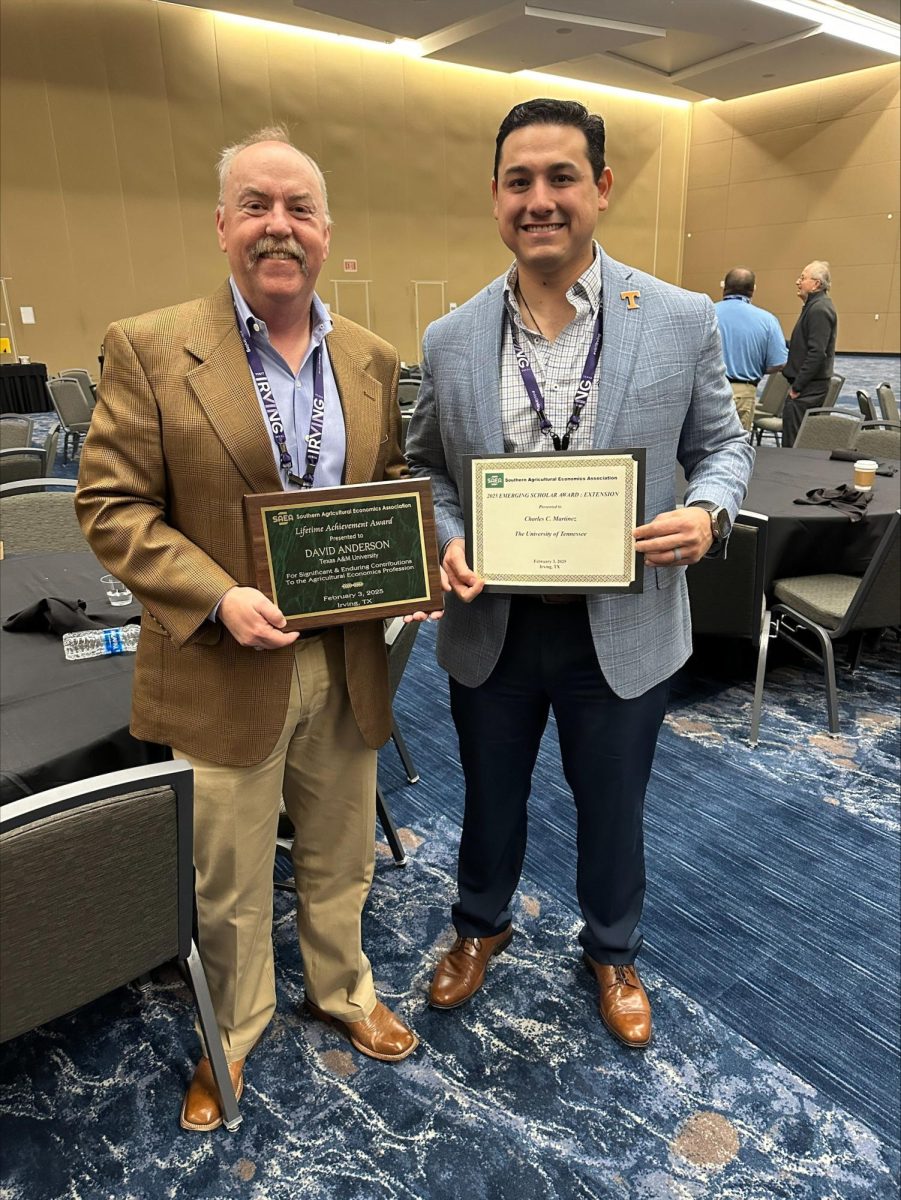Survivors of sexual assault are three times more likely to suffer from post-traumatic stress disorder, six times more likely to experience depression and four times more likely to commit suicide to cope with their assault.
These are only a few of the statistics Tim Mousseau mentioned in his talk “Retaking Our Story: Reframing the Sexual Assault Conversation” Monday night hosted by the A&M Interfraternity Council.
In his presentation, Mousseau described how he became a victim of sexual assault and why it’s important to change the way our culture approaches the subject.
“The reason I say it’s important that we retake our collective and individual stories is because at a certain point I got tired,” Mousseau said. “I got tired of existing in a culture where when I started talking about the fact that I was sexually assaulted in college, people became uncomfortable and didn’t want to have a conversation with me about that.”
Evan Harmon, president of the IFC and financial management graduate student, said as leaders in the community, members of Greek life have a responsibility to be leaders in the stand against sexual violence.
“Sexual violence is an important issue, period,” Harmon said. “As long as it exists in the world, more conversations, awareness and education need to be fostered around the topic.”
April-Autumn Jenkins, program coordinator for CLEAR, or Consensual Language, Education, Awareness and Relationships, said CLEAR partnered with the IFC because many of the council members were eager to discuss sexual violence awareness and prevention.
“[CLEAR is] just really working with them to have a greater understanding of what are some of the programs that they might want to have and need to have,” Jenkins said.
CLEAR helps students, faculty and staff to understand the basic issues surrounding sex and what consent is, Jenkins said.
“I think a lot of times people come to the university with a limited understanding of sex and what sex is like, especially when they’re from Texas, not having sex education in high school and things of that nature,” Jenkins said.
Mousseau’s presentation was important because it provided a different perspective on sexual violence on college campuses, Jenkins said.
“His story is a story that I think that men need to hear,” Jenkins said. “And this hyper-masculine theme that some people may have in their mind about what it is to be a man can push people towards sexual violence.”
Mousseau said one in four women will be sexually assaulted some time in their college career, and men have a responsibility to change that.
“We need to be better because an overwhelming majority of times a female experiences sexual assault in college it’s a male assailant, and that’s an issue that we need to care about,” Mousseau said.
Everyone’s experiences are different and what may be considered a harmless joke by some can be inconsiderate of others and their experiences, Mousseau said.
“Everyone experiences trauma differently, and for you something might be a joke and it might be something that you laugh off, but for someone else it might trigger them in ways you don’t understand, and it’s important for you to respect that,” Mousseau said.
Cooper Dix, physics sophomore and Phi Delta Beta fraternity member, said the event was powerful and moving.
“I thought it was really intriguing how he started it very open, where he started by talking about awkward first dates,” Dix said. “And he just kind of motioned into the overall subject, and it was just very powerful.”
Dix said a moment of the presentation that stuck with him was when Mousseau had everyone close their eyes in order to imagine a different perspective.
“When he had us close our eyes and look down to imagine this situation and he was talking about the bystander effect, just that entire part of the presentation, I thought was just really unique — really it was powerful,” Dix said.









